Sahiyo’s response to recent Executive Orders by the Trump Administration
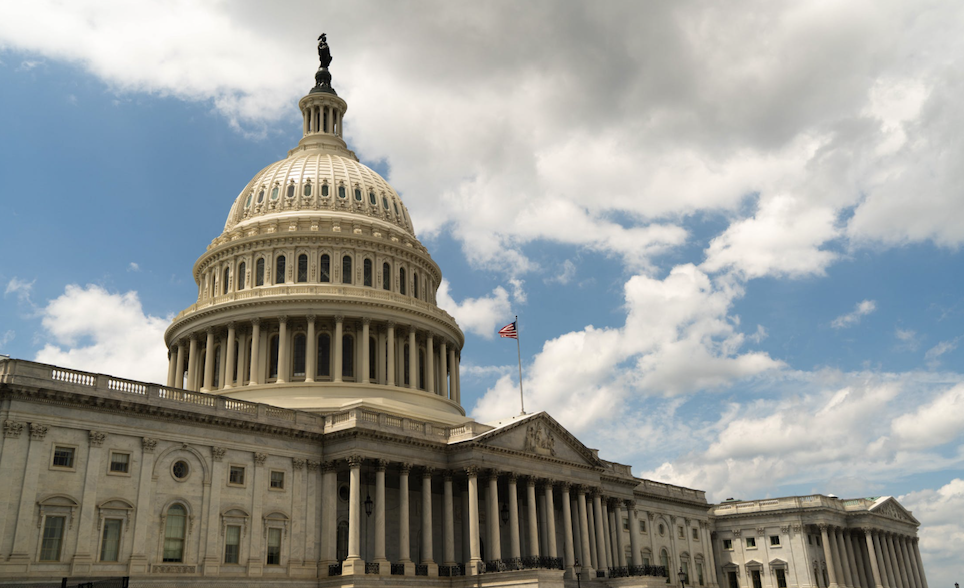
To our Sahiyo community, We realize that the past few weeks have been stressful to say the least. With the new administration’s slew of Executive Orders targeting the most vulnerable and the dismantlement of DEI programs at various organizations, we acknowledge that fear and trepidation are on the rise. If you’re in need of support, please check out the resources at the end of this blog. We admit: we’re also concerned. It’s disturbing watching the Trump administration blatantly conflate FGC and gender-affirming care. As we explained in a recent blog, this not only endangers trans and LGBTQ+ youth but also survivors of FGM/C. Additionally, we know that the recent attempt to freeze federal funding has worried many of you given the potential it has to impact critical programs and resources for our community. We want to assure all of you that Sahiyo is working to secure more funding and continue our programing to support survivors. We’re also working hard on no longer relying as much on government funding given it’s not a reliable source these days. To do that, though, we need your help. We understand these are hard times for everybody, but any kind of monetary donation would help us continue our work during the Trump era. Please, if you can, donate here. In the meantime, we hope you are all taking care of yourselves and each other, and know that we will get through this together. With love and in solidarity, Sahiyo Helpful resources: Our partner, the Asian Women’s Shelter, has a helpful crisis line for FGC survivors (1-877-751-0880) Rape / Sexual Abuse / Incest National Hotline (RAIN): 800-656-4673 Members of the LGBTQ community can call 1-866-488-7386 or visit www.thetrevorproject.org The South Asian Network provides a variety of health and wellbeing resources along with useful information to help immigrants protect themselves BlackLine Crisis Call Line: 1-800-604-5841 The National Hispanic Family Health Helpline, Su Familia: 1-866-783-2645 Dial 988 or visit www.988lifeline.org if you or somebody you know are in a crisis or experiencing thoughts of suicide Psychology Today is a large directory connecting you with therapists, support groups, psychiatrists, and other mental health professionals in your area or virtually The ACLU provides information on your rights if you come into contact with or are questioned by immigration officers
Sahiyo condemns recent executive order conflating female genital mutilation/cutting with gender-affirming care
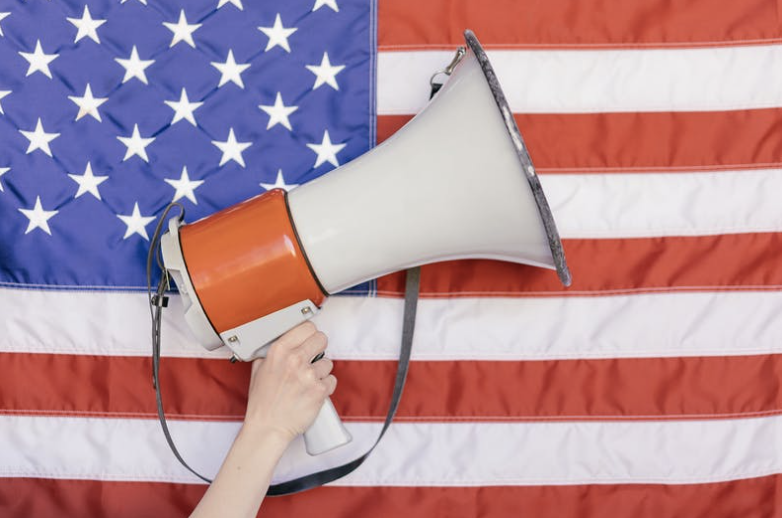
At Sahiyo, we are disheartened and frustrated by the harmful conflation between female genital mutilation/cutting (FGM/C) and gender-affirming care made in a recent Executive Order issued by the Trump Administration. While this is unfortunately not the first attempt made by government officials to co-opt anti-FGM/C legislation to criminalize gender-affirming care for transgender and non-binary youth, the use of the Presidential platform to uplift discriminatory rhetoric and instill fear is shameful and must be addressed. FGM/C comprises all procedures that involve partial or total removal of the external female genitalia, or other injury to the female genital organs for non-medical reasons. The practice has no health benefits for girls and women, and causes severe bleeding, problems urinating, as well as cysts, infections, and complications in childbirth and increased risk of newborn deaths, to name a few negative outcomes. The STOP FGM Act of 2020 made it clear that FGM/C was illegal in the United States. These hard-fought legal protections for FGM/C survivors and those at-risk at the federal level must be preserved by calling out the Trump Administration’s inflammatory rhetoric for what it is: an attempt to dilute the protections already in place to protect survivors of FGM/C, and those at-risk of undergoing FGM/C to harm and discriminate against another vulnerable community. Sahiyo stands with survivors of FGM/C, some of whom also identify as transgender and non-binary, and who have prompted Sahiyo over the years to create programming that can better support their intersectional realities. In fact, Sahiyo studied the intersection between FGM/C and LGBTQIA+ issues in our Critical Intersections Research Project. From our work with survivors, our research, and our experiences, we recognize that there are several key differences between FGM/C and gender-affirming care, namely the fundamental issues of consent and bodily autonomy. FGM/C is a human rights violation performed without consent that compromises the bodily autonomy of children and has negative physical and mental effects that can last a lifetime. Gender-affirming care is a medically necessary form of care that includes a diverse array of interventions to align one’s identity with their sexual characteristics; this care is only provided with the consent of the individual. Research has also shown that these treatments lead to decreased rates of depression, improvement in psychosocial functioning, and minimal long-term side effects. In other words, FGM/C takes away bodily autonomy, while gender-affirming care preserves the bodily autonomy of the individual. For additional information and research, we encourage you to read When Protecting Girls Is Twisted Into Attacking Trans Youth: FGM/C Survivors Fight Back Against Transphobic Right-Wing Narratives. In Solidarity, Sahiyo
A Space to Belong: My Reflection on the 2023 Activist Retreat
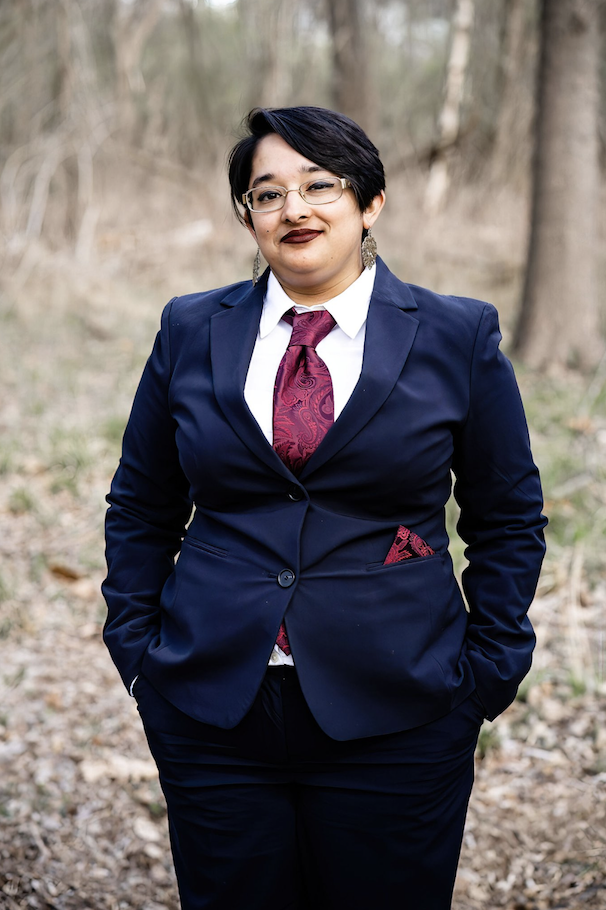
By: Umme Kulsoom Arif Pronouns: they/them Age: 29 Why Did You Want To Attend The Activist Retreat? I attended the Activist Retreat for the first time virtually in 2022, and it was a really affirming experience over those three days. However, I was really excited for an in-person retreat, especially because I had not really interacted with other Bohras who had experienced FGM/C or were even open to talking about the practice. I wanted to meet others who are doing the work that I was doing. I’ve always treated the Activist Retreat as a part of the healing of my inner child and as a part of my journey through the five stages of grief. For the first year I attended, I was in the stage of anger over what had happened to me. During the second year, it was about forgiveness, because my mother and I have had some conversations about khatna since that first retreat. What Have You Learned or Most Enjoyed at This Retreat? I really was blown away by the sheer scale and range of ages of a lot of people. I’ve always thought that FGC activism was a young person’s job. Our generation was doing the work, because previous generations had ostensibly failed us. So I was really blindsided – yet also impressed and pleased to see – that we had moms and grandmothers in the space talking about how they prevented their daughters from being cut, or they themselves were saved from it. Learning that this work had been going on for longer than I have been alive was one of the most beautiful things to hear and just really empowering. Why Are You Involved in the Movement Against Female Genital Cutting? I was five when I was cut, and I was 19 when I found out. At the time that I found out I had been cut, I had one younger cousin and she was also cut despite my family’s best attempts to prevent it from happening. For me, it’s become important to change the narrative around the issue because even if our families try to prevent it from happening, it still happens to those we love. That realization was really powerful and frustrating for me, because we deserve better out of our culture and our faith. It’s also important for me as somebody who sees how much my mom loves being a Bohra, to make it something that she doesn’t have to feel guilty or justify being because of the practice. How Do You Think That This Retreat Will Inform Your Work as an Activist? We had some interesting conversations at the retreat, especially around the Detroit case, and it forced me to process a lot of empathy for those who unfortunately do practice FGM/C. I also had the realization that the practice almost leads to a sort of cult-like mentality. As much as we know that “do no harm” from doctors is part of their oath, the harm of FGM/C does not seem to be seen as harm. That has changed a lot of my anger towards the culture, and it has just forced me to be a little bit kinder in thought to those who still support and practice it — especially as we are trying to change their minds. What Work Are You Doing Currently or Are Hoping to Do In the Future? I’m working on presenting a paper for the Association for Asian Studies Conference on March 14-17. It’s about the intersection of queerness and FGM/C, and what it means to be a non-binary survivor of FGM/C in a space that is incredibly female-focused. One of the things I processed at the retreat was that these spaces— despite the fact that I use they/them pronouns— are where I am most often referred to as a woman. That’s because most people consider the practice to be centered around womanhood and femininity. As I don’t engage with womanhood in a traditional manner, this can be difficult. So my work is centered around trying to reframe it for myself and other non-binary survivors. The harm was done to us was because of a perception of womanhood that was forced upon our bodies. And therein lies the second injustice of FGM/C for non-binary survivors – the denial of our ability to choose our own identities over the one that is placed upon us. That’s what my paper is tackling. How Did This Second Retreat Make You Feel? I felt empowered. The retreat always makes me feel powerful and I find myself leaving with a lot of clarity for what my next steps for my activism are in the coming year. One of my big goals that came out of the retreat was finishing the paper, as I mentioned previously. Also, finding others who had survived FGM/C – speaking to these people who had such varied lives, that weren’t just centered around being a survivor – makes me feel like we’re not alone. There is a line by Rumi, the poet, “Ours is not a caravan of Despair”, and that line comes to me every time I think about the retreat—this is not the Caravan of Despair that we think it is when we’re alone. Do You Have Anything Else You Would Like to Share? Something You Can Share With Other People Who Might be Interested in The Retreat? If you are ever afraid that you’re not going to fit in because you don’t fit the traditional mold of a survivor—you will. Everybody is very welcoming. Related: Volunteer spotlight: Umme Kulsoom Arif On being a Nonbinary Survivor of FGM/C [youtube url=”https://www.youtube.com/watch?v=WfSUlv7Zmto”]
Proposed legislation in Idaho and Texas discriminates against Transgender Youth and removes protections for children at risk of undergoing FGC
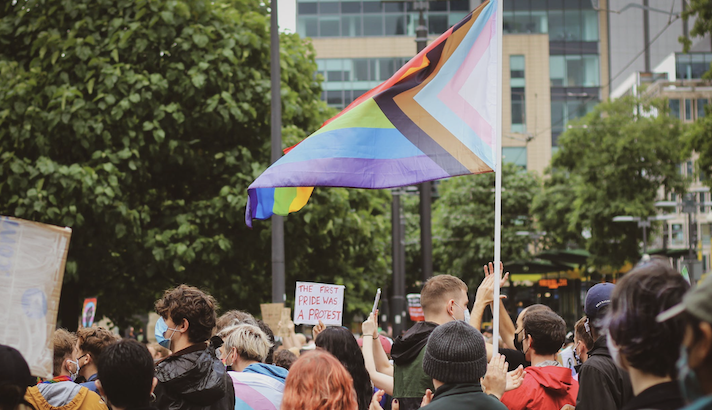
By Hunter Kessous Texas and Idaho are two states in which female genital cutting (FGC) is illegal under state law, for now. In both states, amendments have been proposed in the state legislature that would alter existing policy against FGC to ban gender-affirming care for minors. Gender-affirming care includes social, psychological, behavioral, and medical practices which affirm the gender identity for individuals whose gender does not match the one they were assigned at birth. These amendments are dangerous for transgender youth as well as children who are at risk for or have undergone FGC. These legislative revisions attempt to conflate FGC and gender-affirming treatments, so it is critical to understand the difference between the two. Gender-affirming care, including social interventions, pubertal suppression, hormone therapy, and gender-affirming surgeries, has been shown to decrease rates of depression, improve psychosocial functioning, and have minimal long-term side effects for transgender individuals. Gender-Affirming Care Female Genital Cutting Definition Social interventions, pubertal suppression, hormone therapy, and gender-affirming surgeries which affirm the gender identity of individuals whose gender does not match the one they were assigned at birth. The practice of partial or total removal of the external female genitalia, or other injury to the female genital organs for non-medical reasons. Temporality Health professionals consider pubertal suppression and hormone therapy to be reversible. Gender surgery is permanent, but research has shown that regrets about having this procedure are very rare. FGC causes irreversible, lifelong physical and psychological harms. Mental Health Outcomes Gender-affirming care leads to decreased rates of depression, improvement in psychosocial functioning, and minimal long-term side effects. FGC often leads to harmful psychological outcomes, including PTSD, anxiety, and depression. Bodily Autonomy Medical care for transgender people is their choice as part of their right to bodily autonomy. Minors are often forced to undergo FGC. Consent to undergo FGC cannot be freely given due to societal pressure. To learn more about the differences between gender-affirming treatments and FGC, read here. According to Equality Texas, 76 anti-LGBTQ+ bills were filed in the last legislative session and special sessions in Texas, of which only 20 moved forward and one passed. These legislative failures have led Texas lawmakers to take up a more creative and dangerous approach to get what they want. Bill SB249 amends the state’s Health and Safety code, which has made FGC illegal in Texas since 2017. This legislation is concerning because “Female Genital Mutilation” would be entirely removed from the law, leaving only the term “Genital Mutilation.” Failing to specifically prohibit FGC weakens protections for children who are at risk of undergoing the practice. The amendment adds a list of surgeries that would be prohibited, some of which fall under the WHO classification of FGC, while others are gender-affirming surgeries – thereby wrongfully conflating the two. In addition to removing access to life-saving care for transgender youth, this section is troubling because FGC is not always performed as a surgery. Rather, FGC is often done outside of a medical setting. Bill SB249 puts children at risk of undergoing FGC into a more vulnerable position. Unfortunately, Texas’s state legislature is not alone in pursuing this dangerous action. In Idaho, HB71 has already passed the house and will now be reviewed by state senators. Once again, the term “Female Genital Mutilation” is erased from the law. The language is amended to only refer to practices performed by medical practitioners. However, we know FGC often operates outside of the healthcare system entirely, so this amendment could limit avenues of prosecution against FGC practices. Furthermore, the maximum sentence for breaking the law against FGC is currently life, but this amendment would change the maximum sentence to 10 years, further removing protections for children at risk of undergoing FGC. Where the Texas bill bans gender-affirming surgeries, the Idaho bill goes a step further. Even puberty-blocking medication and hormone therapy would be banned under Idaho’s amendment. Pubertal suppression is a method of delaying puberty, and hormonal therapy causes secondary sex characteristic development that aligns with one’s gender. Both are reversible and associated with better mental health outcomes for transgender youth. Banning these life-saving treatments has no basis in the movement to end FGC. If you are an Idaho or Texas resident, please consider contacting your state legislators to let them know you do not support these bills.
Troubling Idaho House Bill 71 moves on to Senate
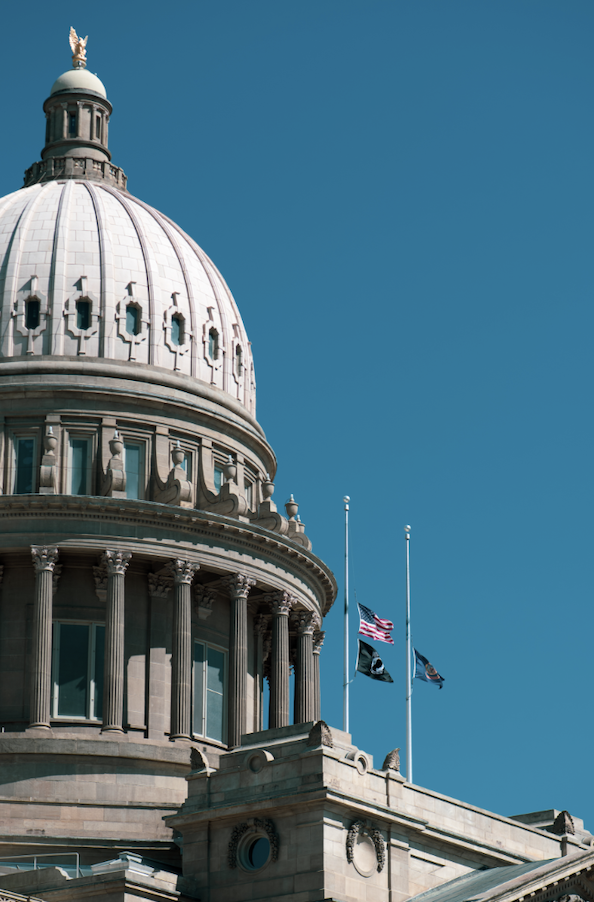
In 2019, the Idaho Legislature established a law protecting girls from female genital mutilation/cutting (FGM/C), recognizing it as a violation of human rights. Yet, for the past two years, the same Idaho Legislature has targeted Trans youth, another vulnerable community, by attempting to amend the existing FGM/C law. This amendment would prohibit gender-affirming healthcare from being performed on children, even if they have parental consent. In 2022, Rep. Bruce Skaung introduced HB 675, which would prohibit surgery “if it is for the sole purpose of attempting to change or affirm the child’s perception of the child’s sex if that perception is inconsistent with the child’s biological sex.” The bill passed the House but was rejected by the Senate, as it was viewed to be an infringement on parental rights. However, as of February 15th, another attempt is being made to take away medical care for Trans youth through HB 71. This bill has passed the House and is on to the Senate for a vote. This Bill is problematic for many reasons; particularly the false assumption that gender-affirming care and FGM/C are comparable. They are not. This Bill puts Trans youth and children at risk of FGM/C, both vulnerable groups, in greater danger. Diluting the current statue, Idaho Code 18-1506B, with attempts to discriminate against Trans youth will ultimately hurt more children and inhibit progress in ending FGM/C in Idaho. Learn more about this Bill by reading this Statement from the US End FGM Network.
Gender-Affirming Treatments are not Female Genital Cutting
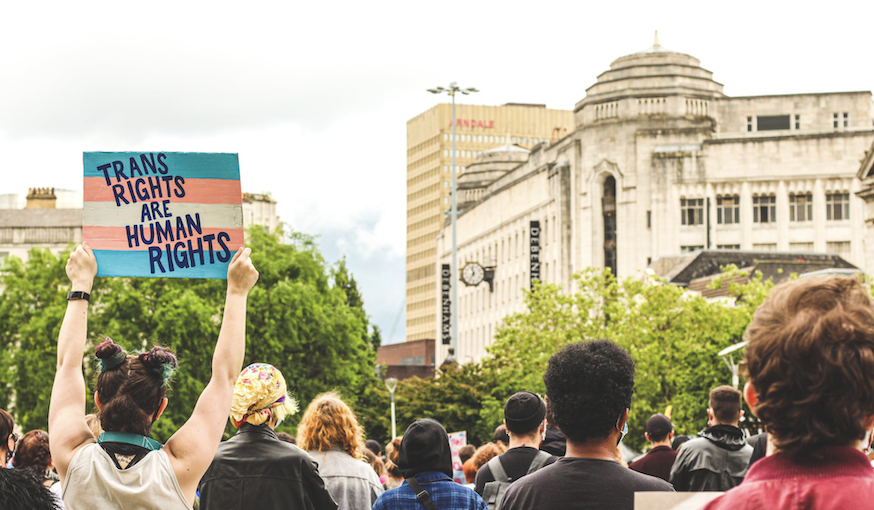
By Hunter Kessous Female genital cutting (FGC), which is the practice of removing or harming the female genitalia for non-medical reasons, is a human rights violation recognized by the UN. Right now, legislators in Texas and Idaho are looking to use pre-existing bans on FGC to block transgender youth from receiving life-saving, medically necessary gender-affirming treatments. This is a discriminatory action that has no basis in the crucial work to end FGC. Gender-affirming care can include social interventions, pubertal suppression, hormone therapy, and gender-affirming surgeries. Social interventions are typically the first step; use of a new name and pronouns, wearing different clothing, and engaging in new activities are often a part of this process. Pubertal suppression is a method of delaying puberty, and hormonal therapy causes secondary sex characteristic development that aligns with one’s gender. Both are reversible and associated with better mental health outcomes for transgender youth. Gender-affirming surgeries, such as mastectomies and vaginoplasty, are irreversible treatments performed on older adolescents who have shown a consistent gender identity and have stable mental health and parental support. Research has shown that these treatments lead to decreased rates of depression, improvement in psychosocial functioning, and minimal long-term side effects. Transgender and nonbinary adolescents experience anxiety, depression, and suicidal ideation at higher rates than cisgender people. According to a report from The National Center for Transgender Equality, 40% of transgender people in the U.S. had attempted suicide at some point in their lives, which is nearly nine times the nationwide suicide rate. Gender-affirming care can significantly improve this mental health crisis. Governor Greg Abbott of Texas was most definitely mistaken when he said “any type of genital mutilation is child abuse” regarding gender-affirming surgery; it is not mutilation, and denial of this care could be more accurately called a form of child abuse by failing to treat serious mental health needs. Texas has attempted to pass several laws that ban transgender youth from access to puberty blockers, hormone therapy, and surgery. Just last year, two of these bills died in session. These failed attempts have led legislatures to turn to FGC laws as a way of making gender-affirming surgery illegal for transgender kids. Idaho is taking discriminatory actions similar to Texas. Earlier this month, a bill that would amend the state’s existing law on FGC to ban hormone therapy, puberty blockers, and sex reassignment surgeries cleared a House committee. The amendment would also make it a felony for doctors to provide these services, placing physicians in the tragic position of needing to risk their medical license if they want to provide life-saving care to transgender adolescents. The senate opposes this bill, so, fortunately, it is unlikely to pass. Disappointingly, their reasons for opposing the bill are neither because they see the necessity of gender-affirming care nor because they disagree with conflating this care with FGC. Rather, they do not see the bill as necessary, as many Idaho physicians are unwilling to provide gender-affirming care anyway, and fear the bill undermines the parents’ authority to make decisions for their children. Texas’s and Idaho’s legislators justify their actions with claims that these medical interventions are similar to FGC in that they are both unnecessary. Yet, gender-affirming care has medical benefits (e.g. improving mental health), while FGC does not. In fact, FGC often leads to harmful psychological outcomes, including PTSD, anxiety, and depression. Another faulty comparison drawn between FGC and gender-affirming care is that they are both irreversible. It is true that FGC has irreversible physical and psychological harms, but this is not the case for all treatments for transgender youth. Again, health professionals consider pubertal suppression and hormone therapy to be reversible. Gender surgery is permanent, but research has shown that regrets about having this procedure are very rare. The benefits of gender-affirming care (improved psychosocial functioning and autonomy over one’s gender identity) paired with the high risk of withholding treatment (worsened mental health outcomes, suicidal ideation and use of non-prescription hormones) support the importance of providing this care. Lastly, medical care for transgender people is their choice as part of their right to bodily autonomy, whereas FGC violates a girl’s right to bodily autonomy. Minors are often forced to undergo FGC and are too young to fully understand what is occurring and give their consent. Furthermore, consent cannot be given when there is coercion. FGC often exists as a result of societal pressure placed on girls who are told FGC is necessary for them to be a woman, to be a member of their own culture and society, and to be married. Consent can not be freely given to undergo FGC, because coercion will always be a dangerous factor. It is harmful and incorrect to conflate FGC with gender-affirming care. I want to make clear that FGC survivors and transgender and non-binary people are not mutually exclusive communities. People who have undergone FGC and do not identify as a cisgender woman in particular would be harmed by legislation that defines gender-affirming treatments as FGC. To learn more about the nuanced experiences of non-cisgender survivors of FGC, I recommend Dena Igusti’s article on being a non-binary survivor and Dear Massi’s advice column for a transgender man who underwent FGC as a child.
